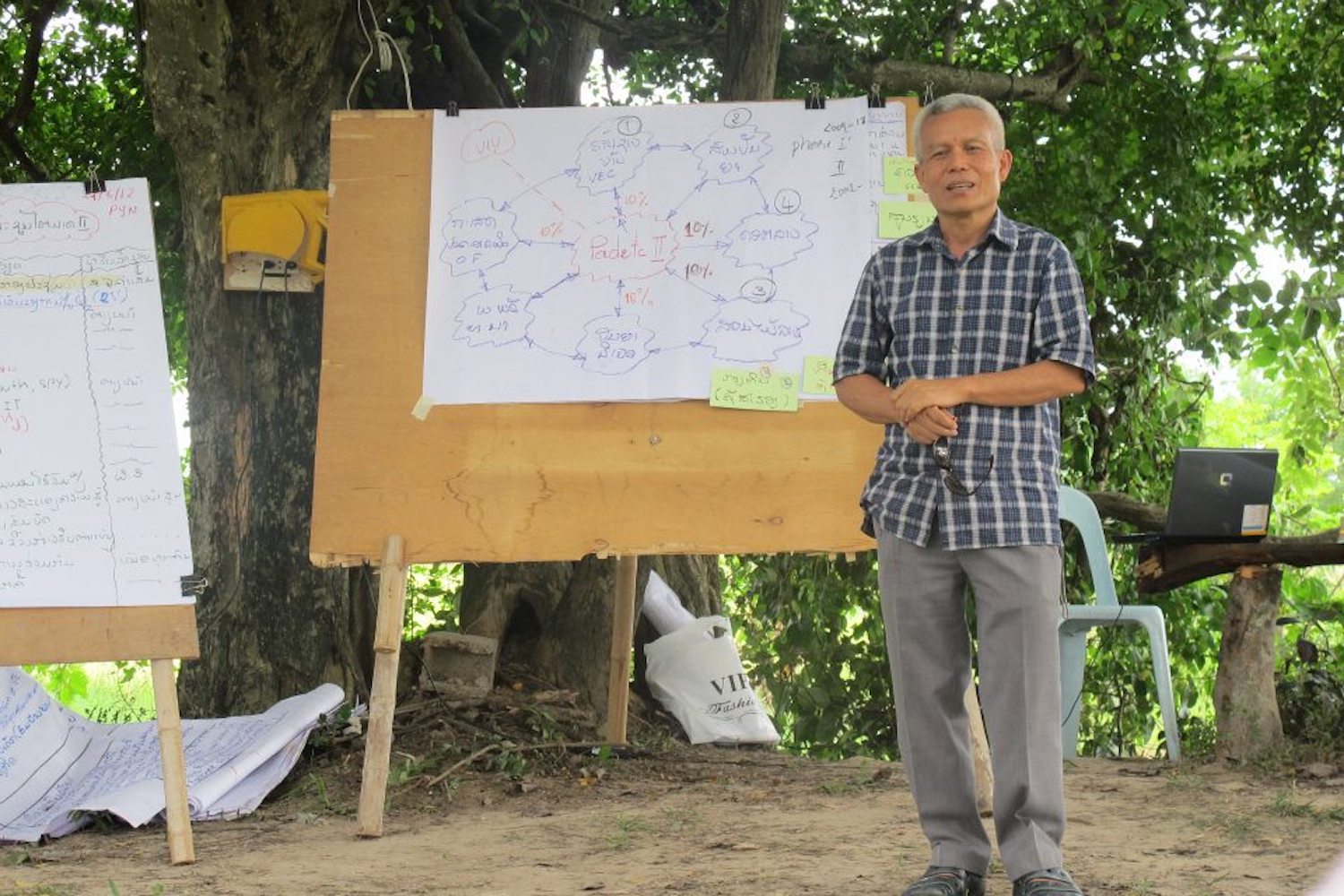The Straights Times: 11 April 2013

A WALL of silence has risen over the disappearance of Magsaysay Award winner Sombath Somphone in Laos four months ago.
His wife, Singaporean national Ng Shui Meng, is exhausted but still not contemplating leaving Laos, the couple’s home for more than 30 years.
“Sometimes I feel this has to be a (bad) dream, a nightmare,” she says. “I stay because there is still some hope.”
Madam Ng was on the way back to Singapore for a break and on a brief stopover in Bangkok yesterday where she had an emotional meeting with Mrs Angkhana Neelapaijit. Her husband – Thai human rights lawyer Somchai Neelapaijit – disappeared under similar circumstances in the Thai capital in 2004.
“I know what Shui Meng is going through,” Mrs Angkhana told The Straits Times. “It’s an emotional seesaw driven by rumours. One day you hear from someone that your husband is alive. The next day you hear that his body has been found.”
Neither man has been found – alive or dead.
Mr Sombath’s abduction may have been triggered by his role in coordinating the Asia-Europe People’s Forum in Vientiane in October last year, where the Laos government came under some criticism.
Video security cameras show him getting out of his jeep near a police checkpoint in the capital city of Vientiane on Dec 15, after police pulled him over. Seconds later a man on a motorbike and another SUV pulled up and Mr Sombath got in with other men. He has not been seen since.
His relatives re-recorded the film on a mobile phone when it was shown to them by concerned policemen – who no longer are at the station.
The Laotian government has acknowledged that Mr Sombath was abducted but denied that a state security agency was involved. It continues to come under pressure at global forums.
Mr Somchai, a prominent Thai activist, was forcibly bundled into a car in Bangkok, on March 12, 2004. At the time, he had been assisting Muslims allegedly tortured by security forces in conflict-torn southern Thailand.
The practice of making people “disappear” creates a miasma of fear in a country. Researcher Sunai Phasuk of the independent agency Human Rights Watch in Thailand said: “Enforced disappearance is a common practice and an ongoing problem.”
Mrs Angkhana has campaigned tirelessly against the problem. Her husband’s disappearance was the first such case to be heard in a court of law in Thailand. Policemen were charged with his abduction, but acquitted.
“The biggest problem with enforced disappearances is there is no body, so you cannot charge suspects with murder,” said Mrs Angkhana.
Her husband and Madam Ng’s are from the same generation. Mr Sombath is 61.
Asked about Mr Somchai, Mrs Angkhana thought for a moment, then said: “He would be 63. If he is still alive.”
Nirmal Ghosh
